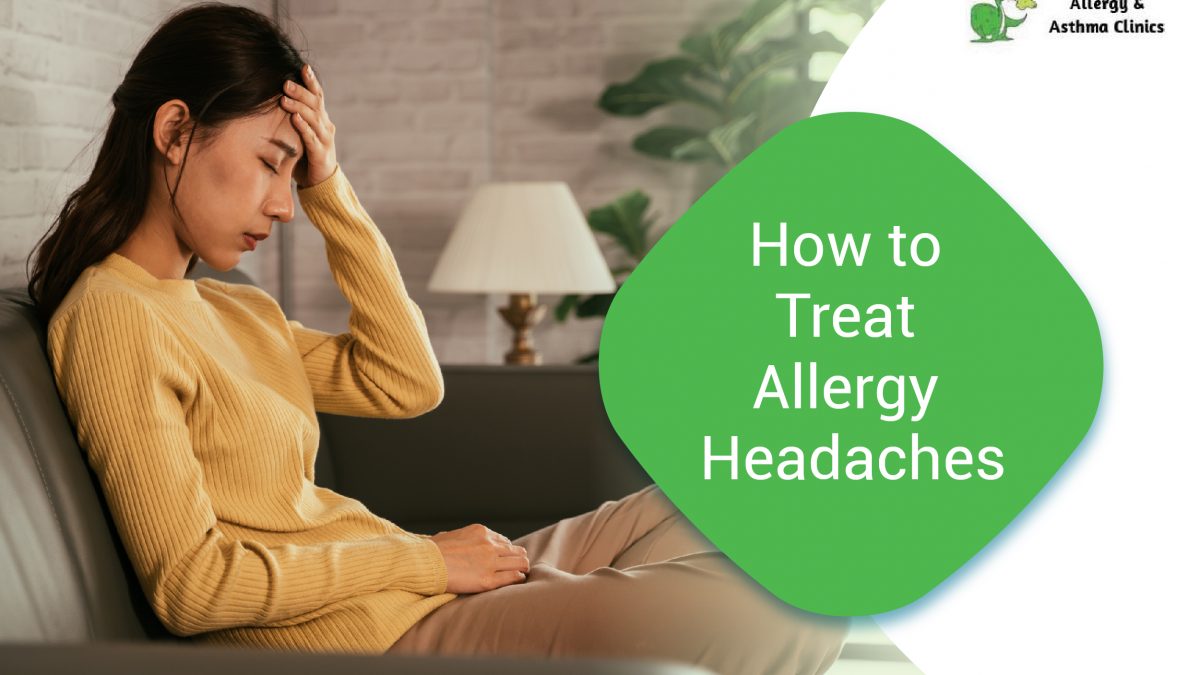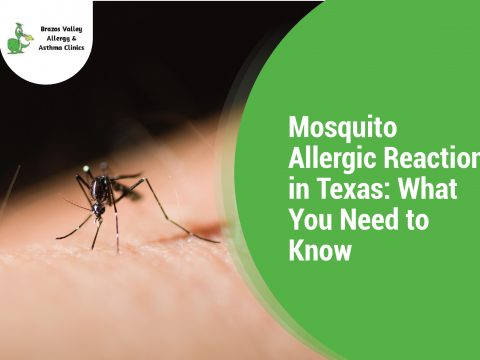- 979-485-9287
- office@bvallergy.com
-
 979-251-7804
979-251-7804
How to Treat Allergy Headaches

Fighting Summer Allergies: Causes and Best Treatments
May 25, 2022
Does Exercise Worsen Asthma?
June 21, 2022Most people think allergies and headaches are unrelated. This is probably because of the differences between their symptoms. However, medical research says that allergies trigger certain types of headaches. These are migraine and sinus headaches. This article will discuss vital information on managing headaches caused by allergies.
June is Migraine and Headache Awareness Month. Join us in our discussion to raise awareness and help improve the lives of individuals affected by these health conditions.
Sinus Headaches and What it Feels Like
Can allergies cause headaches? Yes, they can. Experiencing headaches caused by allergies feel slightly different from a regular headache. The pain typically comes from your sinuses rather than your head. As a result, the pain center revolves more often in your face. The hurting typically starts from your cheeks and crawls right into your jaw and teeth.
Migraine and What it Feels Like
Allergies trigger migraines. The pain usually begins on one side of the head, accompanied by throbbing that gets worse with sunlight. What’s more, you may feel nauseated too.
How Allergies Trigger Headaches
The human skull has multiple interconnected hollow crevices called sinuses. These small spaces are lined with tissue and mucus. The sinuses’ job is to filter and humidify the air you inhale. In addition, it drains liquid substances from the nose.
During an allergy attack, symptoms often appear in your sinuses. The crevices that make up the sinuses are located in the following:
- Forehead
- Behind the nose
- Cheekbones
- Between/behind the eyes
Allergies cause inflammation in the sinuses in the areas mentioned above. When this happens, you experience headaches, significantly when their passages get obstructed.
Note: The level of pain differs from one person to another. In addition, the pain changes with your position, whether you are lying down or standing.
Common Symptoms of Headache from Allergies
Sinus Headache
- Pain that escalates when you lie down or bend over
- Painful sensation in the upper teeth or jaw
- Discomfort, pain, and pressure in the fullness between the eyes
- Pain behind the cheeks or forehead
- Stuffy nose and breathing difficulty
- Fatigue
Migraine
- Worsening pain that manifests with bright lights, flashing lights, or shapes
- Extreme sensitivity to light, sound, or smells
- Nausea and vomiting
- A pulsating, throbbing pain (one side of the head)
Causes
Sinus Headache
- Grass pollens
- Dust mites
- Mold
- Pet dander
- Tree pollens
- Tobacco smoke
Migraine
- Tobacco smoke
- Hormonal changes, including menstruation
- Strong smells
- Changes in the weather
- Fatigue
- Hunger
- Alcohol
- Food allergies or intolerances
- Stress
How to Treat Allergy Headaches
Below are the different approaches to treating allergy headache symptoms.
Sinus Headache
Prescribed or over-the-counter painkillers. These medications provide quick and efficient allergy headache relief.
Antihistamines (oral). These drugs come in two types. One type induces drowsiness, while the other doesn’t. Take the non-drowse when at work or in the daytime. Or follow your allergist’s instructions.
Nasal Spray (antihistamines). Nasal sprays are ideal for providing fast relief for a clogged nose. It helps reduce nasal inflammation, allowing you to breathe easier.
Decongestants (oral). Oral decongestants are effective in reducing the inflammation of your airways.
Nasal Decongestants. You can use nasal decongestants if you prefer a faster relief for a clogged nose. They reduce the inflammation of blood vessels in your nose.
Nasal Irrigation. The manual flushing of mucus using a saline solution is one of the best ways to manage sinus headaches. You can rinse with a bulb syringe, neti pot, or a small spray bottle.
Migraine
Triptans. These types of drugs are ideal for treating mild to moderate migraine attacks. They are considered the first line of defense against migraines.
Dopamine. Migraines are often accompanied by nausea. Dopamine is potentially effective in dealing with both symptoms.
Painkillers. Some over-the-counter painkillers may not work with migraine headaches. Talk to your doctor before taking more potent doses.
Corticosteroids. This medication helps reduce inflammation effectively. They are available orally or via IV.
Dihydroergotamine or DHE. In cases where the other drugs don’t work, doctors often administer DHE.
Additional Allergy Headache Treatment Tips
Here are some of the most effective ways to manage allergy headaches.
Learn your allergies and their triggers.
The best way to reduce the risks of triggering allergy headaches is to learn your allergy type and triggers. Your allergist can provide you with all the information you need.
Keep an eye out for your local pollen count. Minimize your outdoor activities when the pollen count is high. Pollen is invisible to the naked eye, so it’s best to stay at home when there is increased pollen.
Good housekeeping. Molds trigger allergic reactions that may lead to headaches. Keep your house clean and maintain furnaces and air conditioning properly.
Strengthen your immune system. Sometimes, allergies are very challenging to avoid. The least you can do is boost your immune system. Start by getting enough sleep, eating healthy food, taking vitamins, and exercising. Healthy living protects you from seasonal allergy headaches.
We hope this post gives you helpful insight into allergy headaches and how to manage them. Remember that doctors will always be your best bet against allergies and headaches. The key is to find the right team of health professionals you can rely on. When you encounter the question: Do allergies cause headaches? You now know the answer.
Lead an Allergy-Free Lifestyle Today
Brazos Valley Allergy & Asthma Clinics begin with allergy testing to provide you with an accurate diagnosis and treatment. We aim to help you lead a better life free of allergies. We offer quality healthcare services, including immunotherapy, which strengthens your immune system naturally. The allergists in our clinics are always here for you.
Book an appointment with our allergists today by clicking this link. You can also talk to us by dialing 979-485-9287.




